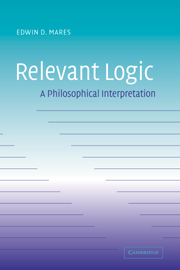8 - Counterfactuals
Published online by Cambridge University Press: 03 September 2009
Summary
Introduction
Consider again Adams' examples of indicative and counterfactual conditionals:
If Oswald didn't kill Kennedy, then someone else did.
If Oswald hadn't killed Kennedy, then someone else would have.
Someone asserting the first of these sentences would assume that Kennedy was killed, but would not assume that Oswald did it. Someone asserting the second, on the other hand, assumes that Oswald did kill Kennedy.
We have a theory of how to evaluate the indicative conditional. We look at the circumstances that the people involved in the conversation in which it is stated can legitimately envision. If those people are taking this conditional seriously, then they will limit themselves to possible circumstances in which Kennedy is murdered. In those in which Oswald is not the murderer, someone else is. Thus the conditional is true.
I suggest that there isn't a very big difference between counterfactuals and indicative conditionals. I think that the way we evaluate them is very similar. In the case of the Kennedy counterfactual above, what we do is imagine ourselves in a situation in which we have all the salient information but not the information that Kennedy has been murdered (or even the information that he is dead). We then ask whether the indicative conditional ‘If Oswald does not kill Kennedy, someone else will’ is true in this situation.
The reason that we hesitate about answering this question is that we don't know what all the salient information is. We don't know what the CIA, Cuban Intelligence, the KGB, and the Mafia were planning.
- Type
- Chapter
- Information
- Relevant LogicA Philosophical Interpretation, pp. 144 - 160Publisher: Cambridge University PressPrint publication year: 2004



